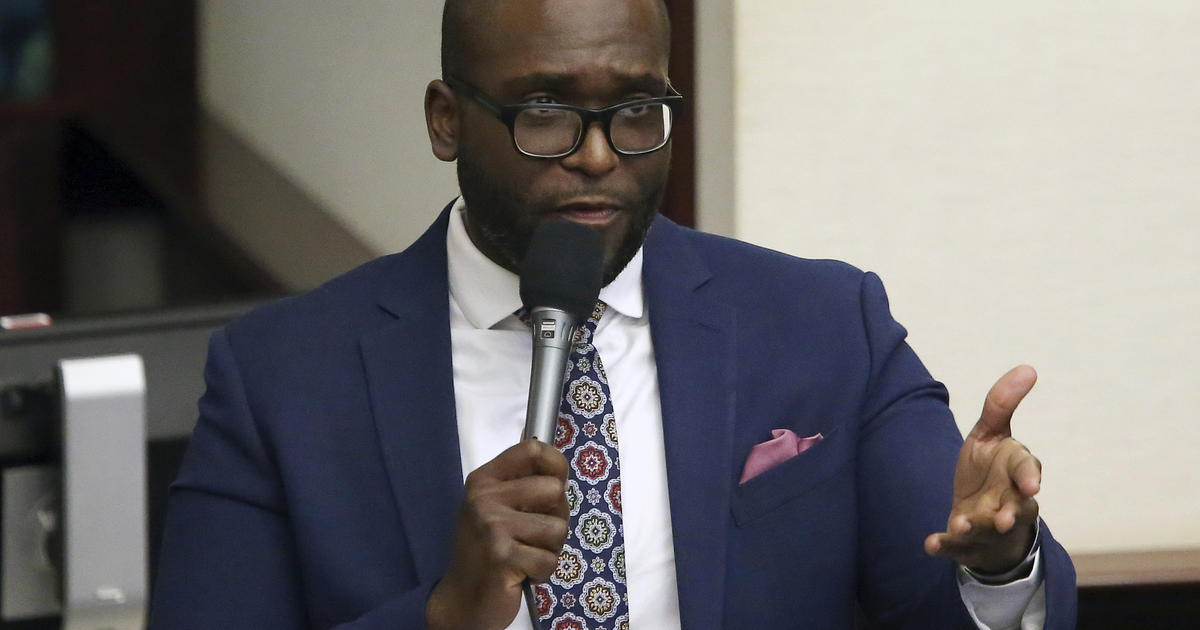Sylvester Center Partners With Fire Depts. To Assess Cancer Risks
Follow CBSMIAMI.COM: Facebook | Twitter
MIAMI (CBSMiami) - Every day men and women from fire departments across the country put their lives on the line, and at risk, in more ways than you can imagine.
Its not just about running into burning buildings or scaling heights to rescue someone who is injured and trapped.
A recent study by the National Institute for Occupational Safety and Health found that firefighters may be at a higher risk of digestive, oral, respiratory, and urinary system cancers than the general population. Statistics from The International Association of FireFighters found that "by the age of 60, twice as many firefighters die from cancer than from cardiac arrest."
CBS4 Chief Investigator Michele Gillen has reported extensively on the link in a series of reports called "The Silent Killer."
Now the Sylvester Comprehensive Cancer Center at the University of Miami Miller School of Medicine has partnered with Miami-Dade Fire Rescue and Palm Beach County Fire Rescue Departments to learn more about the increased risk and determine ways to reduce the cancer rate.
"The message of your story resonates and now we're going to do the research to explain why and to come up with the solutions to make a difference," said Erin Kobetz, Ph.D with the Sylvester Comprehensive Cancer Center.
Fires generate toxic materials, some of which are known or suspected to cause cancer. Because of this, firefighters may be exposed to these carcinogens in higher proportions. But there has never been a focused study to address how this occurs or how to reduce the risk until now.
"The stars aligned and it was a great opportunity and something I think obviously is needed for our heroes," said State Representative Jeanette M. Nuñez.
The partnership between the cancer center the fire departments will use nearly $1 million in funding from the state of Florida to learn exactly how much toxic material firefighters are exposed to and how to reduce risk of developing cancer.
"When we see trends that point to one group of people facing a higher risk of cancer, that's when we need to take a closer look at the possible causes," said Dr. Stephen D. Nimer, Director of Sylvester Comprehensive Cancer Center in a statement. "As a comprehensive cancer center, it's our role to lend our expertise to reduce cancer rates wherever and whenever possible."
"The men and women who put their lives on the line to keep others safe, are now facing another threat. Our goal is to learn why those numbers are higher so we can ensure our responders remain safe on the job," said Miami-Dade Fire Rescue Chief Dave Downey.
As part of the study, the fire departments will enroll 90 percent of their firefighters. They will then be given screenings for detection of early signs of colorectal cancer and cervical cancer.
Sylvester researchers will then to work to determine what the firefighters are exposed to that increases their cancer risk and develop new technology to measure exposure in the field. For example, they will try to understand how personal protective equipment affects the firefighters. After fighting a fire, a lot of the contaminants that they are exposed to actually stay on their personal equipment. Just how much and how potentially toxic they are will be looked at.
"They're realizing, these people that are outside the fire service, that there is a problem here and that's where it all came together," said Miami-Dade Fire Rescue Chief Dave Downey.
As part of the effort, firefighters will be linked to the Florida Cancer Data System, a state-supported cancer data registry managed at Sylvester, for improved monitoring and develop an education campaign to inform firefighters about prevention and early detection.



